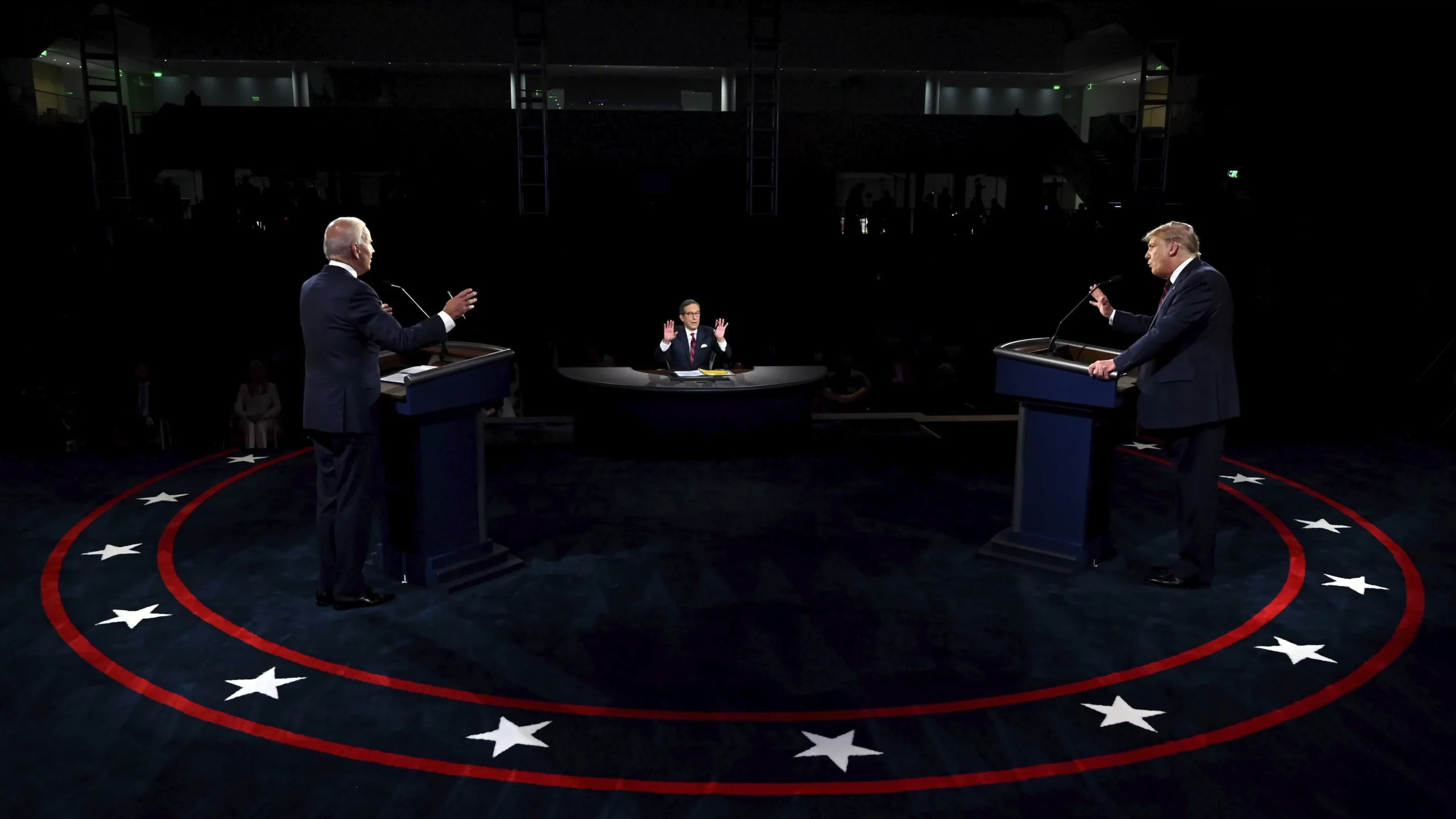

Former President Donald Trump is expected to go after President Joe Biden for many of his climate and energy policies Thursday night in Atlanta as they square off in the first 2024 presidential debate.
Unlike previous debates, including those between Trump and Biden in 2020, Thursday’s showdown is unique because both men onstage will have served almost a full first term in office, giving each other plenty of ammo.
Trump is expected to argue that Biden’s efforts to boost clean energy and limit carbon emissions have weakened U.S. national security and energy dominance, leaving the nation vulnerable to adversaries like Russia and China.
“I don’t think these two candidates could be any further and distinctly different on energy issues than they have been,” Dan Kish, the senior vice president of the American Energy Alliance, a conservative-aligned advocacy group, told the Washington Examiner in an interview.
Trump will likely focus primarily on restoring fossil fuel production and exporting energy to allies.
“I think first and foremost, you’re going to see Trump hit hard about the decline in America’s standing across the world,” Brigham McCown, a senior fellow and director of the Initiative on American Energy Security at the Hudson Institute, told the Washington Examiner in an interview. “That both in the international sphere as well as the domestic economy, we have gone backwards.”
For instance, Trump could take aim at Biden’s controversial decision to sell off 180 million barrels of oil from the U.S. emergency stockpile following Russia’s invasion of Ukraine — a decision that drained the Strategic Petroleum Reserve to its lowest point in 40 years. The administration has since struggled to refill the reserve under the terms of its original buyback plan.
Trump has vowed to approve more oil and gas drilling permits. Trump could also use his time to go after Biden’s decision to restrict and ban oil and gas drilling in some parts of the country, including on millions of acres in Alaska’s North Slope, Kish told the Washington Examiner.
The president of the American Energy Alliance authored a report this week outlining more than 220 actions that the group says Biden and his allies have taken in the past three years to restrict energy production, which Kish told the Washington Examiner illustrates the wide range of activities that Trump could seize on in the debate to go after Biden.
“From our perspective,” Kish said, Biden’s actions have had “a significant reduction on energy security.”
Most likely, Trump will attack Biden over the Inflation Reduction Act, the Democratic-led legislation that allocates $369 billion to climate and clean energy spending at the commercial and consumer level.
The Inflation Reduction Act, which narrowly cleared both chambers in August 2022 before being signed into law, includes up to $7,500 in consumer tax credits for certain electric vehicles to help incentivize widespread consumer adoption (which Treasury officials estimate has already saved consumers a total of $1 billion). It also includes generous tax credits to help subsidize the cost of renewable energy projects, such as offshore wind, to attract new investments.
McCown said he expects Trump to go after the Biden administration for picking “winners and losers” when it comes to prioritizing clean and renewable energy.
The Congressional Budget Office has since revised its original $369 billion price tag for the Inflation Reduction Act, estimating that the law’s clean energy provisions will cost taxpayers roughly $428 billion more than originally projected over the next 10 years. (Another report from Penn Wharton projected that incentives for electric cars and trucks alone would add around $393 billion in costs in the next 10 years.)
If elected to a second term, Trump could most certainly tighten the Treasury Department criteria that determine consumer eligibility for the EV tax credits.
Trump has also vowed to roll back the stringent tailpipe emissions and fuel economy standards set by the administration, which he could hit Biden with Thursday night.
The Biden administration is targeting an 8% reduction in tailpipe pollution beginning in model years 2024 and 2025, before increasing to a 10% reduction beginning in 2026, a far more stringent standard than Trump, who in 2020 had pared down the fuel economy standards from the 5% reduction set under former President Barack Obama just 1.5% beginning in 2026.
CLICK HERE TO READ MORE FROM THE WASHINGTON EXAMINER
Trump has previewed these plans several times, including in his “Plan to Save America’s Auto Industry” earlier this year, which outlined his push to “terminate” what he described as Biden’s assault on the U.S. manufacturing sector.
That plan called for undoing what he described as the administration’s “insane” fuel economy standards for vehicles and creating a special team of “warrior lawyers” to “identify and immediately eliminate every unnecessary regulation” harming the auto industry, though the campaign has not elaborated on what that means.





